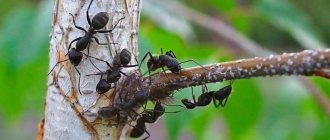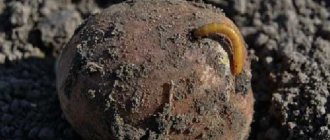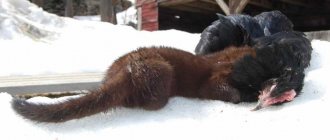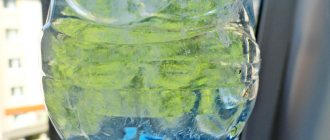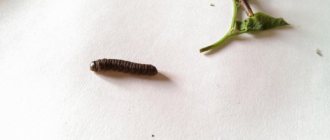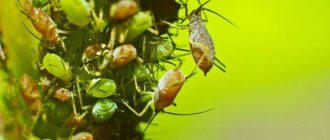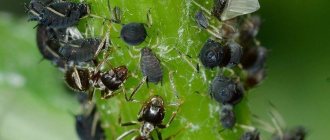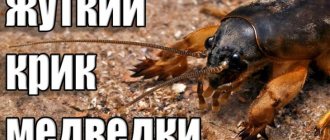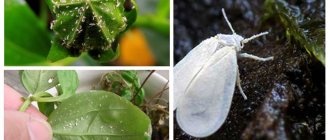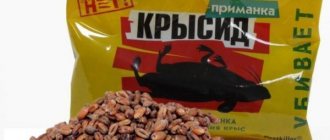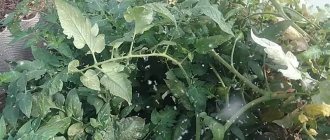Author: Michael Potter Updated: September 23, 2021
One of the main dangers is that termites can be very secretive enemies. Traces of their vital activity may not even be observed. They can bite into your house, for example, from under the foundation and devastate all the insides of the wooden floors of the house. The worst thing is that it will take them 2-3 years for your fortress to collapse – in the literal sense of the word.
This guide will be useful not only to those who have already been in trouble, but also to those who want to protect themselves and their home from the appearance of these disgusting insects. Today we will find out: who are termites, what do they do and why do they need to destroy our settlements? We will also consider the most effective methods of pest control, means of prevention and the opinion of respected experts on this matter.
Who are termites and why are they dangerous?
Small insects, vaguely reminiscent of ants, with white bodies and wings. In the process of evolution, they evolved from cockroaches, and ants are precisely their enemies. They have a clearly defined hierarchy for such insects. Having seen them once in person or at least in pictures on the Internet, you are unlikely to confuse them with someone else.
Why do termites destroy houses?
Termite food is cellulose. The main storage of this material, as we know, is wood, and only then all its derivatives: paper, cardboard, etc. In the context of nature, termites cannot even be called pests, since they only feed on dead wood. In extremely rare cases they can be found in a living tree. But since houses are built from recycled wood, this is an excellent treat for these insects. And the fact that they are not interested in the tree itself, but only in the cellulose, is evidenced by the dust left at the crime scene.
Which termites are dangerous?
There are 2 main types of termites: subterranean and arboreal. The former live both in the ground and in wood, the latter, respectively, only in structures made of wood. Underground individuals also live in various sheds, garden houses, and dung heaps. They also cause much more damage to your property. If you were able to determine that it was these termites that attacked you, it will not be easy at all; most likely, you will need to turn to professionals.
How can you tell if your home is infested with termites?
If you have any of these signs, start taking action immediately or contact a specialist:
- Small round holes - termites gnaw holes and gnaw out tunnels, which they both feed on and make their way through
- Tunnels - if you find cracks or damaged areas, then try to “pick them apart” even wider and see if this is just damage or a trace of termite.
- Trash - small piles of trash next to the holes described above. Another sure sign.
- Waste - if termites hide their existence well, then they simply get rid of excrement. You can use them to track insects.
How to Get Rid of Termites Naturally
To begin with, you can try to move the infected wood from the site. This is a humane method, meaning that termites that are harmful to human farming can be moved to where they will be useful as participants in soil metabolism.
Small pieces of wood that contain live termites can be soaked in soapy water to kill the insects. Large pieces can be taken to a landfill or to nature, where the termites' abilities will be beneficial, say scientists from the University of Washington.
Nitrogen and electric current . If termites are found in dry wood, they can be eliminated using liquid nitrogen. To do this, small holes are drilled in the affected wood into which nitrogen is injected. Another option for physical impact is electricity. Using a special gun, The Electrogun™, a high-voltage, low-current electric charge is directed at insects inside dry wood. It is used for limited infections. Microwave radiation is also used for this purpose.
Cardboard traps . A cardboard trap, which you can create yourself, will have a limited effect by moistening two sheets of cardboard placed on top of each other. When they are filled with insects, the cardboard can be destroyed using available methods. But it is important to understand that this method will not solve the problem of the appearance of new individuals. Pest control manufacturers also produce sticky cardboard traps. One of these traps is presented in the selection of tools below.
Sun or frost - these measures are quite complex and can be suitable for furniture and other small objects. Place infested wood in the sun to warm up. But scientists from the University of California Agriculture and Natural Resources warn that “the treatment process involves heating all the wood in the structure to nearly 50 degrees and holding that temperature for more than half an hour.” Can you provide these conditions? Freezing is even more difficult. Place the furniture in a huge freezer if you have one, or take it out into the cold if it happens in your area. The termites will die within 1-2 days.
Don't worry if the problem cannot be solved with improvised means. Less than 4% of such attempts lead to success. It is recommended to combine these measures with those below, and as a result their combined effectiveness will increase dramatically.
In what parts of the world do termites live and in what climate?
Termites can be found in almost every corner of our Earth, except, of course, Antarctica. A small number of these insects live in Europe (about ten species) and North America (fifty species). A large number of termites live in South America. There are more than four hundred species there. However, the largest number of species of these insects is distributed in Africa. This continent is home to 1,000 of the 3,000 possible species of termites.
For example, in the northern Kruger National Park there are one million termite houses. Only 435 species of termites live in the Asian part of the world. These insects are more common in China. But in Australia there are 360 studied species of termites.
According to biologists, termites cannot live in cold climates due to their delicate cuticle. In general, there are three subspecies of these insects on the planet: wet-wood, dry-wood and underground. The wet-wood species inhabits coniferous forests, the dry-wood species lives in deciduous forests, but the underground species is common in all climatic zones and territories.
In the Russian Federation, termites can be found in Vladivostok and Sochi. There are about seven species of termites in the CIS.
Organic Termite Killers
Dust and powder . Another method is to dry out insects using special dust, such as diatomaceous earth or silica airgel. They cut into the chitinous cover of insects and penetrate inside, drawing fluid from the body. The dust is harmless to humans as long as it is not inhaled. To avoid irritation of mucous membranes, use a mask and safety glasses. However, scientists have differing opinions about the effectiveness of diatomaceous earth. Some consider it effective, others do not. Most likely, the answer lies in one of its features: diatomaceous earth loses its effectiveness even with low humidity. Therefore, it can only be used for termites in dry wood.
Natural enemies . Sometimes it is not necessary to deal with termites yourself. You can break into the passages made from the colony to the feeding areas, after which natural enemies of termites, for example, ants, can get into them.
Another enemy is Nematodes. The idea is to attack the enemy with his own weapon. Nematodes parasitize insects. They must penetrate the host's body and therefore destroy it. A termite lives 48 hours after infection. The disadvantage is that the nematodes themselves soon die. These worms can be purchased on Amazon.com. Scanmask 10 Million Live Beneficial Nematodes: ~$12.99.
Boric acid . Finally, a proven remedy against many types of insect pests is boric acid. A simple and affordable product, widely used in different forms: as a powder or component in baits. This is a slow-acting substance. After eating boric acid, the insect will gradually experience paralysis and die. PestGuard Boric Acid : ~$6.99.
Other tips
You can find various tips on the Internet on how to get rid of termites. However, some of them are ineffective, want to know why?
For example, spraying wood with gasoline does not work. It does not penetrate into the wood where insects live and feed. In addition, gasoline is very flammable and smells unpleasant.
You may also have come across advice on using kerosene, motor oil and other similar products. They are not only toxic to the human body, but also flammable.
How do termite killers work?
| Product type | Ingredient | Principle of operation | When and for what is it better to use | How effective is it? |
| Liquid insecticide | Fipronil | Slow poison, causes paralysis when eating treated wood | For pestilence and creating a barrier around the house | Effective, but will take time to kill a colony |
| Granules | Imida chloride | Kills after eating | Scatter as a barrier | Effective against insects on the street - a protective barrier against pests entering the house |
| Foam | Fipronil | Slow-acting poison that causes paralysis | Foam passages and galleries | Dense foam will not give you a chance to get out - it will kill you within a few days |
| Powder | Diatomaceous earth or silica airgel | Kills by dehydration | Sprinkle in areas where termites accumulate | Only for termites in dry wood |
| Boric acid | Boric acid | Causes paralysis after eating. | Fall asleep in passages and galleries | Effective, but since the substance acts slowly, it will take time to exterminate the entire colony |
| Cardboard traps | Cardboard, water, glue, bait | Detains insects | Where they appear near a food source | Will only catch termites on the surface |
| Nematodes | Killer roundworms | They parasitize termites and eat them. | Inject into the affected tree or into the soil near the colony | 50-99%, depends on whether the nematodes have time to infect the termites |
| Lures | Hexaflumuron or diflubenzuron - slow-acting components | Sterilize the queens - the colony will die out | For outdoor use only | Very effective, but will take the most time |
Top 7 termite remedies
Termidor SC Termiticide
The product, which has very high reviews from customers on Amazon, costs $77.70 for 0.6 liters of liquid. It contains fipronil, which kills termites slowly and therefore quickly spreads among the inhabitants of the colony. Mix it with water according to the instructions and fill a 15cm ditch around the foundation of the house. Once in the soil, the product should form a long-term barrier against insect pests.
Bayer Diy Termite Killer
Imidachloride granules are also quite popular among consumers and are easier to use than liquid insecticides. They are placed around wooden structures that are of interest to termites and just wait. 4 kg of granules cost $44.97 and are enough for 60 meters of poured strip.
Termidor Foam
Another Thermidor, this time in the form of a foam with fipronil, a slow-acting poison. The product costs $24.95. The foam is contained in a container under pressure and is convenient to use in addition to the classic insecticide. Using a long nozzle, foam is pumped into cavities and hard-to-reach places where the nest is located. 80% of buyers did not give this product the highest rating.
TERRO 16 oz. Carpenter Ant & Termite Killer Aerosol Spray
This spray with a nozzle for hard to reach areas is different from other products because it kills termites quickly and is suitable for quick protection of individual properties, but not for long-term control of a large colony. The product creates a barrier against insect attacks for up to four weeks. 450 grams of spray costs $6.05. Contains permethrin and tetramethrin.
36 Catchmaster
36 cardboard traps that can be rolled up or used as flats cost $14.99. They will not rid the house of new termite infestations, but can be used as local protection for individual items. Typically, the trap is capable of holding not only insects, but also mice, lizards and even snakes.
Comparison of traps used by professionals and households
Let's compare two products: the first is Spectracide for homeowners and the second is Advance professional.
Spectracide Terminate Termite Detection & Killing Stakes
Five stations with baits for the local area with hexaflumuron (a slow-acting insect growth regulator) cost $16.31. They are installed on the ground with submersion and attract termites. This device has two directions of action: detection and killing. Dig a small hole, place the station in the soil and wait. Once the device detects termites, an alarm will appear indicating their presence. Suitable for outdoor use only. Placing 15 bets will protect up to 230-280 square meters. The trap will last up to 12 months before needing to be replaced.
| Product | Active substance | Peculiarities | Price |
| TERRO 16 oz. Carpenter Ant & Termite Killer Aerosol Spray | Tetramethrin, permethrin | Aerosol | ~$6.05 |
| Bayer Diy Termite Killer | Imida chloride | Granules | ~$44.97 |
| Termidor | Fipronil | A powerful insecticide that can only be used twice a year | ~$77.70 |
| Termidor Foam | Fipronil | Foam, suitable for hard to reach areas | ~$24.95 |
| 36 Catchmaster | Sticky base | Cardboard trap, insects stick to it | ~$14.99 |
| Spectracide Terminate Termite Detection & Killing Stakes | Hexaflumuron | Kills termites and signals their appearance | ~$16.31 |
Good swings
13. Use vibrations to communicate with each other. When soldiers feel threatened, they will knock or bang their heads against the colony tunnel walls, creating vibrations to warn others.
14. Some species have existed on Earth for more than 250 million years. They have existed much longer than humans. The earliest humans lived four and a half million years ago, dinosaurs about 230 million.
15. There are more than 2,700 species of termites in the world. They outnumber humans. You might be a little intimidated by how many there are. There are 453 kg of termites per person. This is a staggering amount for one person. Then multiply that number by the billions of people on the planet and you get a truly terrifying number.
16. There are so many of them that, according to some estimates, they constitute 10% of all animal biomass, 95% of soil biomass and insects in tropical regions.
We turn to specialists
The effectiveness of the remedies that I have offered you is high and time-tested. But they will not always be able to help you. You may not have enough experience, and you do not use the drugs correctly, do not completely cover the area, make other mistakes, or something simply does not work out. In this case, you should not hesitate - you need to contact an exterminator. His help will cost a lot of money, but:
- The exterminator must provide a guarantee for his work.
- He is an expert in his field
- They use substances to fight that are not freely available.
Do not forget that scammers are everywhere, and, in addition to wasted money, you may lose your home due to poor quality processing or harmful, potent poisons. Explore several offers on the pest control services market. Try to find out as much as possible about the company you like. If there are no reviews on their site or, better yet, only positive comments, be careful, it looks like a scam. A guarantee for the quality and durability of the work performed must be issued in writing, and repeat inspections and visits to maintain the quality of the work performed must be carried out free of charge.
Preventive measures: what to do if there are no termites yet?
If you have not yet encountered termites in your yard or have already successfully defeated them, then, of course, you need to take preventive measures. Here are the precautions experts recommend:
- Once construction is complete, keep the soil around the foundation dry.
- Reduce openings that termites can exploit (fill cracks in cement base, etc.).
- Keep vents clear of blockages, including plants.
- Make sure that trees and shrubs are not planted too close to the walls of the house, and do not allow them to push through wooden surfaces.
- Do not place firewood or wood debris near your home.
- Periodically inspect firewood storage areas to make sure that termites have not taken up residence there.
One of the best means of prevention is Rust-Oleum 01901 Coppercoat Wood Preservative. The drug has been certified and is safe for people. It is best to use this repeller during the construction stage, but if you missed this point, it’s okay. Take a brush and apply the liquid to all wooden structures: coat generously and let dry. Please note that the product is recommended for outdoor use - you work with it indoors at your own peril and risk.
Let's summarize!
Termite control requires a responsible approach. Firstly, there is no other way to defeat them, and secondly, your home is probably one of your greatest material assets and losing it due to insects is not acceptable. Use different means, combine and you are sure to win.
Description of appearance
Different varieties of termites have some differences related to:
- With body coloring.
- Covering the body with a chitinous shell.
- With the presence of the thoracic region, although underdeveloped.
- With a large head, armed with a powerful mouthparts.
Depending on the species, as well as social status, insects grow in length from 2 to 15 mm. Workers and soldiers do not have eyes at all, or they do have them, but they are underdeveloped. On the head you can see thin antennae, as if connected by numerous segments. Their length depends on the age of the insect, so their age is easily recognized.
The size of insects also depends on the purpose of the individuals. Working individuals are not large in size, but soldiers can be up to 2 centimeters long. At the same time, they have a fairly large head and very powerful mandibles. Because of this, they cannot feed on their own and are fed by workers. Some species are distinguished by the fact that they have a special growth formed on their head. This growth serves so that soldiers can shoot a special repellent liquid at their enemies.
Winged termites are armed with two pairs of compound eyes and two simple eyes. After the individuals find suitable habitats for themselves, they break off their wings along a certain seam. Although their wings are large, they are weak and not intended for long flights, although in the presence of wind they can be carried quite far. That's why they don't fly as well as they plan. Winged individuals are endowed with the properties of reproduction, which is not given to workers and soldiers, since they do not have gonads.
The king, and especially the queen, of termites are distinguished by their size, which is typical for more “advanced” species, in which working individuals are 10 times smaller than the queen. In appearance, the queen of termites resembles the queen of ants. The queen is constantly engaged in mating with the king and laying eggs. As a result of this, her abdomen stretches so much that she stops moving independently. If necessary, it is simply transferred to neighboring chambers by working termites.
In more primitive species, the queen, although different in size, is not significant. The termite queen can live at least 10 years thanks to special enzymes that have an antioxidant effect.
The king of termites is the same in size as the working individuals. At the same time, the king is always next to the queen. Its main task is the timely fertilization of the female.
Representatives of some families have special outgrowths on the head, in the frontal part, on which anxiety pheromones are released, which are captured by the rest of the family members.
Each species has its own ratio of workers to soldiers. As a rule, the number of soldiers is no more than 3 percent, although there are varieties of termites that do not have soldiers at all or their number is about 15 percent or slightly less. Thanks to Japanese scientists, it was established that X chromosomes are responsible for the sexual dimorphism of such social insects. Thanks to the presence of this gene, either female or male individuals appear, as well as workers or soldiers. This feature is typical for more “advanced” species. As for less “advanced” species, the social status of their larvae depends on special ferromones, as well as on the nature of their diet.
Termites, like any type of insect, have 3 pairs of limbs. The color of species varies even within the same termite mound. Therefore, inside the termite mound, in its complex passages, you can find insects with both dark and light body coloring.
Termites. Film fragment. HD 1080p
Watch this video on YouTube
